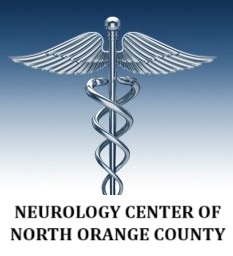The Role of Alzheimer Clinical Trials in Advancing Treatment Options
Understanding Alzheimer’s Disease and Its Impact
Alzheimer’s disease is a progressive neurodegenerative disorder affecting memory, thinking, and behavior. This condition is a leading cause of cognitive decline, significantly impacting individuals and their families. Globally, millions face the challenges posed by Alzheimer’s, and as the population ages, the prevalence of this disease is expected to increase.
The importance of Alzheimer clinical trial in advancing treatments cannot be overstated. These carefully designed studies aim to test new therapies, assess safety, and ensure efficacy. By addressing key aspects of disease progression, they provide hope for patients and shape the future of Alzheimer’s treatment.
What Are Clinical Trials for Alzheimer’s?
Definition and Purpose
Clinical trials for Alzheimer’s involve testing potential therapies or interventions on people diagnosed with mild cognitive impairment, mild Alzheimer’s disease, or other stages of the condition. They are essential for developing effective treatments for cognitive and functional performance issues caused by the disease.
Phases of Clinical Trials
Clinical trials follow a structured process:
Phase I:
Focuses on determining safety, often involving healthy volunteers or a small group of participants.
Phase II:
Explores the efficacy and monitors side effects among those with mild Alzheimer’s disease dementia or amnestic mild cognitive impairment.
Phase III:
Confirms results in larger populations, comparing new treatments with existing options.
Phase IV:
Involves post-marketing studies to assess long-term effects and optimize therapeutic use.
Each phase plays a critical role in addressing the clinical progression of Alzheimer’s and related dementias.
Stakeholders in Alzheimer’s Clinical Research
- Researchers: Investigate the impact of therapies on brain amyloid and tau protein levels.
- Participants: Often include individuals with a family history of Alzheimer’s or those at increased risk due to genetic factors.
- Regulatory Bodies: Ensure compliance with safety and ethical standards.
Recent Breakthroughs in Alzheimer’s Clinical Research
Innovations in Treatment
Breakthrough therapies like those targeting amyloid plaque and tau burden have revolutionized Alzheimer’s research. Recently approved drugs aim to slow cognitive decline and improve brain function in those with early Alzheimer’s disease.
Role of Biomarkers and Imaging
Advanced techniques, such as amyloid PET scans and cerebrospinal fluid analysis, are helping researchers understand disease progression. These tools, coupled with plasma biomarkers, provide insights into elevated amyloid levels and other clinical symptoms.
Impact on Cognitive and Functional Performance
Personalized medicine strategies have emerged, offering treatments tailored to the individual. These therapies target cognitive health and aim to preserve normal memory and brain metabolism.
Participating in Alzheimer’s Clinical Trials
Eligibility and Exclusion Criteria
Participants must meet specific criteria based on disease stage, cognitive function, and overall health. Common inclusion factors include early Alzheimer’s disease or amnestic mild cognitive impairment. Exclusion criteria often involve other neurodegenerative diseases or unrelated medical conditions.
Benefits of Participation
- Access to cutting-edge treatments targeting age-related cognitive decline and mild dementia.
- Contribution to advancing medical knowledge for future generations.
Risks and Ethical Considerations
While there are potential side effects, safeguards ensure participant safety.Support groups often provide emotional backing to participants and their families.
Challenges in Conducting Alzheimer Clinical Trials
Recruitment and Retention Issues
Finding eligible participants with mild cognitive impairment or mild Alzheimer’s disease is challenging. Recruitment strategies often involve engaging healthy volunteers and those with a family history of the condition.
Regulatory and Ethical Hurdles
Adherence to protocols set by bodies like the National Institute on Aging ensures trials remain ethical. Addressing ethical dilemmas surrounding genetic risk testing is also critical.
Scientific Complexity
The multifaceted nature of Alzheimer’s disease makes long-term studies challenging. Researchers must account for factors like amyloid β accumulation and cognitive change over time.
Learn more about clinical research innovations in Alzheimer’s Association Clinical Trials.
The Future of Alzheimer Clinical Trials
Emerging Trends in Research
Researchers are shifting their focus toward early detection. Treatments for early-onset Alzheimer’s disease aim to slow progression and address elevated brain amyloid levels.
Technological Integration
Artificial intelligence and remote monitoring tools are streamlining clinical research. These advancements enable better tracking of outcomes like functional performance and cognitive health.
Global Collaborations
International efforts are fostering data sharing and joint research initiatives. This collaboration accelerates the development of therapies for related dementia and Alzheimer’s.
Frequently Asked Questions (FAQs)
What is the success rate of Alzheimer clinical trials?
While success rates vary, recent advancements in biomarker validation and imaging techniques have improved outcomes. Therapies addressing mild dementia and brain metabolism show significant promise.
What is the new breakthrough for Alzheimer’s?
The latest breakthroughs include therapies targeting tau burden and elevated amyloid levels. These treatments aim to slow disease progression in early stage and mild Alzheimer’s disease dementia.
How long do the 7 stages of Alzheimer’s last?
The duration of each stage varies, with early Alzheimer’s disease often spanning several years. Factors like family history and genetic risk influence progression.
Conclusion
Alzheimer clinical trials are crucial in advancing treatment options and understanding the complexities of cognitive impairment. These studies offer hope for patients and caregivers alike.
Participation in clinical research is a meaningful way to contribute to the fight against Alzheimer’s and ensure better outcomes for future generations.


